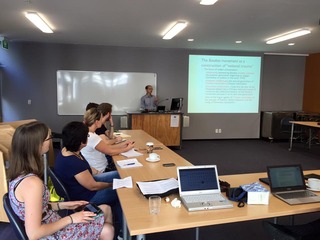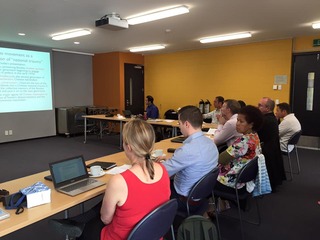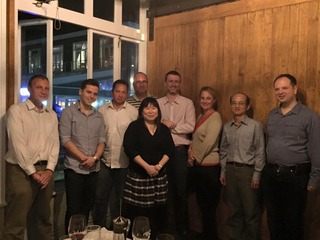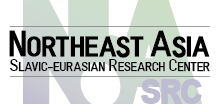"Border Studies Down Under" March 7, 2016 at the Victoria University of Wellington, New Zealand
On March 7th, 2016, border studies scholars gathered in Wellington, New Zealand, for the "Border Studies Down Under: Workshop on Borders and Non-State/Sub-State Actors" which was hosted by Alexander Bukh at the Victoria University of Wellington. The workshop opened with few words from our lovely host, followed by Akihiro Iwashita's opening remarks read by fellow colleague, Naomi Chi, as he was unable to attend the workshop as he had to attend to a family emergency. In his remarks, Akihiro Iwashita mentioned that this workshop is part of the initiative to further promote border studies within the Asia-Pacific region but also the founding of the Japan Chapter of Border Studies which is in the midst of creating a linkage with the Association of Borderlands Studies.
In the first panel titled "Territorial Disputes and Civil Society," speakers dealt with the theme of territorial disputes within East Asia. The first presentation was given by Achin Hsiau, from Taiwan's Academica Sinica, on "Defending Diaoyutai Islands: Territorial Dispute, National Trauma, and Generation in Taiwan"; the second presentation by Alexander Bukh entitled "Korean National Identity, Civic Activism and Dokdo/Takeshima Territorial Dispute"; third presentation by Ted Boyle from Kyushu University entitled "Bounding Japan: Scaled Borders, Homogenized Territory and Towards a Theory." Their presentations emphasized the importance of examining the interactions between state policy and civil society in territorial issues, and whether there has been a conceptual change in the manner in which both state and the people understand the notion of "national territory."
The second panel examined "Migration, Human Security and Borders," and kicked off by Naomi Chi who examined "Human Security in Northeast Asia," emphasizing that human or non-traditional security could potentially displace traditional security for Asian states, and thus potentially lead to an era of increased cooperation rather than competition between them. In "Practicing Democracy Across Borders: the electoral participation of New Zealand's Australian diaspora," Kate McMillan of the Victoria University of Wellington sought to analyze the voting patterns of the large trans-Tasman diaspora, potentially a voting bloc forming about 15% of the electorate. The last speaker, Kimberly Collins of California State University, talked about "Regional Integration, Policy Networks and Democracy in the California-Baja California Border Region," emphasizing the varied scales of border governance, the culturally constructed notion of good governance which is applied to such regions, and a potential typology of governance applicable to the region. Her primary claim that resonated across all three papers was the need for 21st century institutions, ones capable of not only responding flexibly to local border issues but able to incorporate human security whilst remaining democratically accountable.
The final panel entitled "European Borders and Non-State Actors," invited three speakers including Martin van der Velde of Radboud University who presented his work "The Perception of the Dutch-German border as a barrier by citizens and institutions" which focused on the EU's Interreg programme, which seeks to develop and increase cohesion within the cross-border region as a whole, and its effect on the perceptions of locals regarding the border. The paper by Jussi Laine of the University of Eastern Finland, "Building a Transnational Space for Action: What Role for Civil Society?", focused on the Russo-Finnish border, appeared at time to have an utopian view of the notion of Cross-Border Cooperation, in which it seemed possible to separate it from the wider social context within which it occurs. The third speaker, Serghei Golunov of Kyushu University presented his work "Balancing on the Border between Legality and Illegality: Informal Trade in the Russia-EU and the Russia Japan Borderlands," which examined patterns of shuttle trade of four commodities across these borders in the years since the end of the Cold War. The fourth paper in the panel, by Saleem Ali of the University of Queensland, looked at "Science Diplomacy across the Bering Straits: Experiential Learning as an Opportunity for Thawing US-Russian Relations. Based on the speaker's involvement in various forms of experiential learning, it sought to emphasize the potential contribution of such projects to both the education of students and the border areas themselves.




 Eurasia Unit for Border Research (Japan)
Eurasia Unit for Border Research (Japan)




